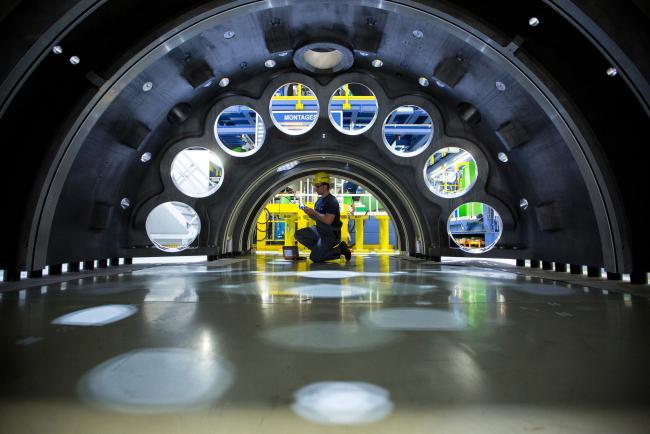(Bloomberg) -- Terms of Trade is a daily newsletter that untangles a world embroiled in trade wars. Sign up here.
Germany’s economy is suffering its worst downturn in almost seven years as a manufacturing slump deepens, raising pressure on the government to add fiscal stimulus.
Factory activity is shrinking at the fastest pace in a decade and growth in services is softening, according to a monthly report by IHS Markit. There were also further signs that the labor market is taking a hit. That could have an adverse impact on demand and set off a negative spiral for Europe’s biggest economy.
Adding to the gloom, the nation’s VDMA engineering industry group said Monday there’s no turnaround in sight. It predicts production will drop 2% in 2020 after a similar decline this year.
The confluence of trade tensions, challenges for the auto industry and looming Brexit are threatening to push Germany into recession after the economy shrank in the second quarter. According to Markit, the economy may struggle to record any expansion at all for the rest of the year.
In a sign that the export-driven industrial slump is spreading into the rest of the economy, Markit said jobs growth is stalling after almost six years of uninterrupted growth.
The latest reports also showed weakness in France. For the euro area as a whole, manufacturing activity shrank for an eighth month -- largely due to German weakness -- while services growth slowed.
The slump in Germany’s economy has prompted louder calls for the government to provide fiscal support. While the European Central Bank earlier this month rolled out a new stimulus package for the euro zone, Germany has so far been reluctant to step up.
Chancellor Angela Merkel promised to stick to a policy of zero deficit spending on Friday, even as her administration announced a 54 billion-euro ($60 billion) package designed to help put its climate targets back on track.
“The manufacturing numbers are simply awful,” Markit economist Phil Smith said of Germany. “All the uncertainty around trade wars, the outlook for the car industry and Brexit are paralyzing order books, with September seeing the worst performance from the sector since the depths of the financial crisis in 2009.”
(Adds VDMA forecast in third paragraph)

